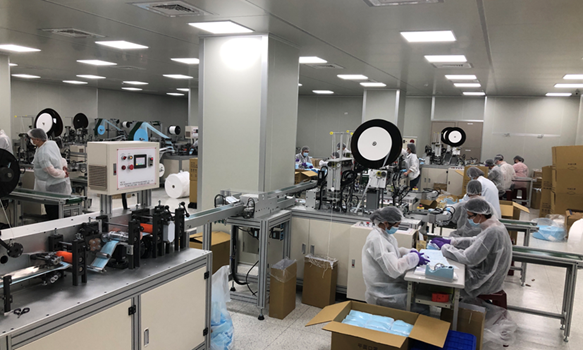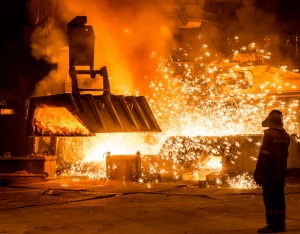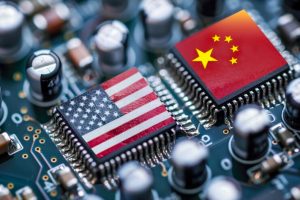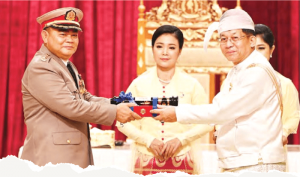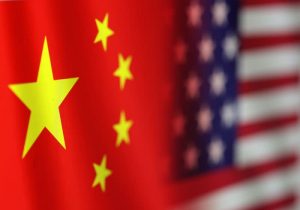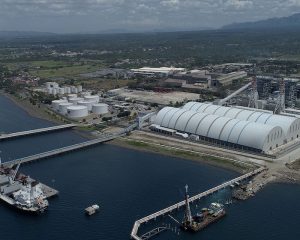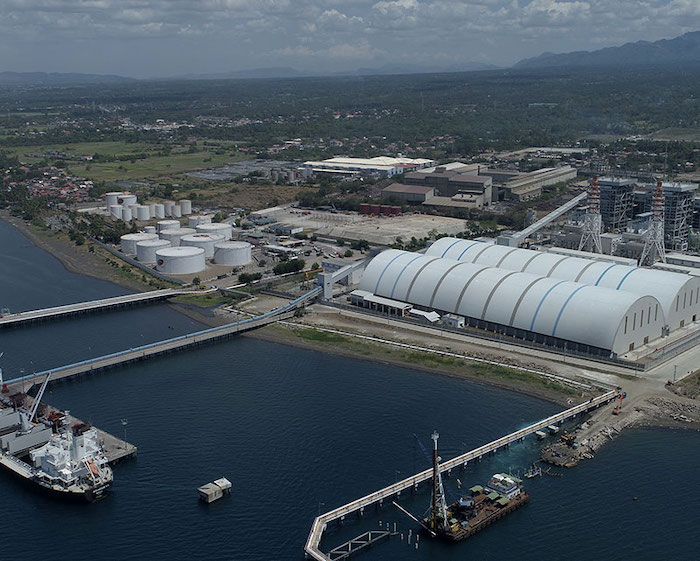A consortium of Taiwanese medical mask makers is exporting technology and equipment to help countries as far away as the United States make the protective gear on their own amid disruptions in the international supply chains for finished masks.
The consortium organised by Taiwan’s government – which nationalised mask-making in February to increase production – has found clients in Spain and South Africa for its $15 million “turnkey” packages that include equipment, training, testing, maintenance and the underlying technology to make 2 million face masks per day, said Garth Kao, project manager with consortium leader Taiwan Comfort Champ Manufacturing Co.
Clients can use the technology packages to operate “micro-factories” as long as they already have land, water and electricity, Taiwan’s Digital Minister Audrey Tang said.
Sales of the technology packages should raise income for the five companies, Kao said, though it was too early to estimate amounts.
Chang Yu Plastic, NCM Machinery, Trimeltech and Win-Win Innovation are the consortium’s other members. They joined up because of their complementary core businesses, including access to upstream material, he said.
“After Covid, we can imagine that the next virus will be even stronger, so to make this system for masks is extremely important,” he said in an interview.
Buyers in 2 states, 8 more keen
Buyers in eight other countries, often led by government agencies, have expressed interest in the consortium’s technology, Kao added. Canada, Indonesia, Japan, Malaysia, Saudi Arabia and the United States are among them.
The consortium developed technology for masks that can be used for three years and block 99% of any toxins, Kao said. Users of the blueprint can produce masks of three non-woven layers along with ear bands and nose wires.
A client of the technology will be able to establish a fully automated facemask “logistics chain” over a short time, the minister said in an interview recently. Doctors wear the masks to treat patients with little risk to either party as general populations in much of the world are using them as a safeguard against Covid-19.
The digital minister predicts more long-term interest in the factory setups than in receiving shipments of finished masks from abroad.
“Even (while) there are many jurisdictions that have already got coronavirus in control, they will probably not want to rely on overseas support all the time if the next wave happens, especially now that we have not designed a vaccine yet,” Tang said. “So, this kind of micro-factory will reach an even wider international audience compared to the medical masks themselves.”
As mask supplies ran short in some countries earlier in the year, donors in China sent hundreds of thousands abroad, according to reports in the country’s state-run media.
Vietnam
Vietnam also donated 550,000 masks to Western Europe, 200,000 to Russia and 250,000 to the United States, Vietnamese media outlets said in April.
Taiwanese officials announced in April they would donate 10 million masks to countries heavily hit by the deadly respiratory disease that was discovered half a year ago in China.
But Taiwan had banned mask exports during the virus outbreak through June 1 to ensure a steady supply at home.
China supplied 25% of world facemask exports last year, more than any other country, according to World Trade Organisation figures.
But setbacks in obtaining export qualification papers, concerns about delays in foreign entry ports and “soaring” logistics costs have hobbled some Chinese exporters during the Covid-19 outbreak, Beijing-based news outlet Global Times said in March.
Vietnam, a world hub for manufactured exports, saw an increase in mask orders from Japan, South Korea, Germany and the United States over the first four months of the year.
Taiwan’s technology package lets clients abroad establish “independent” supply chains rather than depending on imports, Kao said.
The global supply chain is dominated by China and subject to quality problems, he believes.
Chinese state-run Xinhua News Agency reported in April the country’s regulators had taken “new measures” to strengthen the quality of exports.
Mask production in Taiwan turned a corner in February under government control. Within 50 days the island’s mask makers added 92 new production lines, Kao said.
Taiwan Comfort Champ, an unlisted 9-year-old company, has a single-day capacity of three million masks.
ALSO SEE: Asia firms turn to making medical gear




